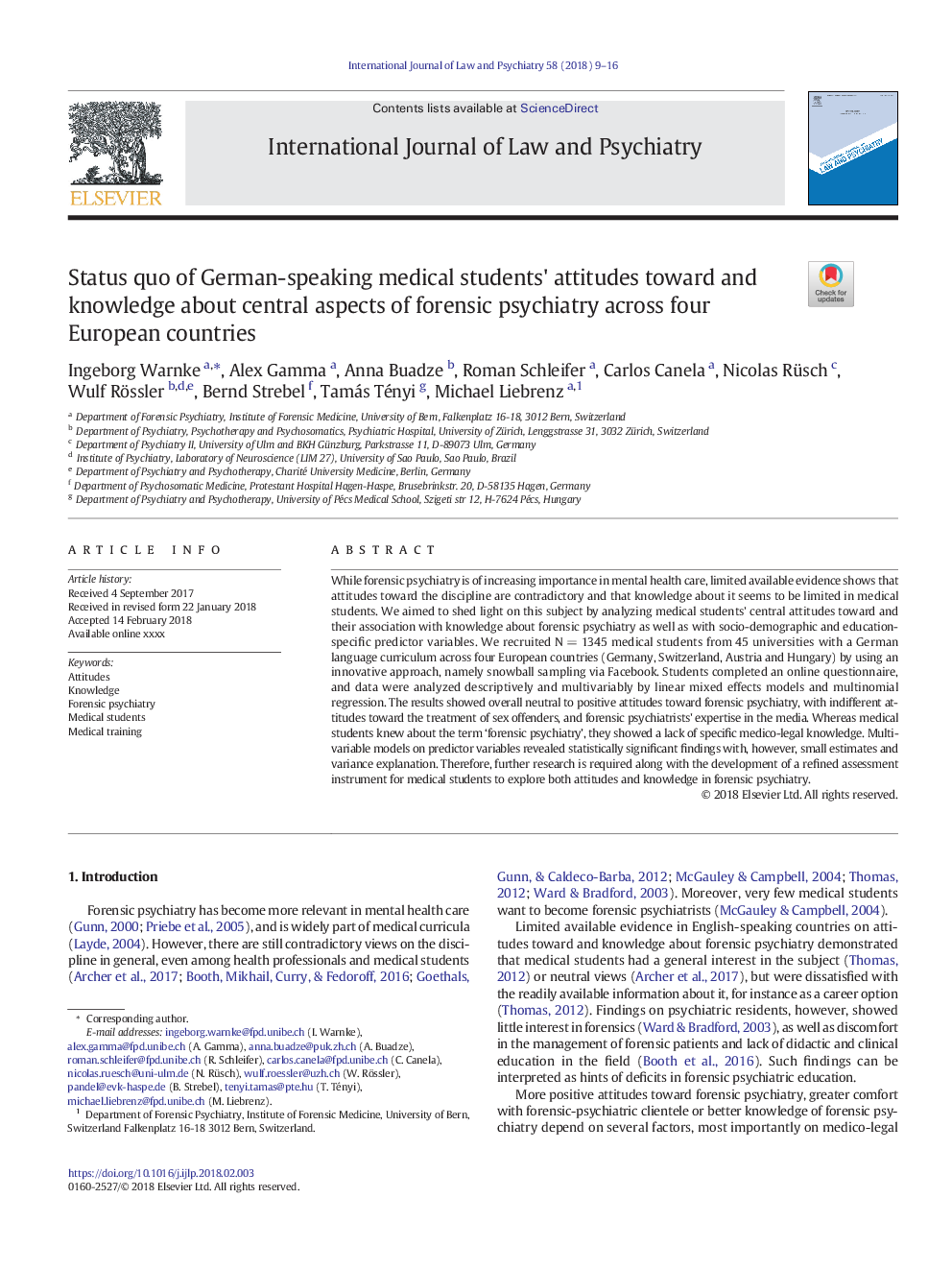ترجمه فارسی عنوان مقاله
وضعیت نگرش دانشجویان علوم تربیتی آلمانی و دانش در مورد جنبه های اصلی روانپزشکی قانونی در چهار کشور اروپایی
عنوان انگلیسی
Status quo of German-speaking medical students' attitudes toward and knowledge about central aspects of forensic psychiatry across four European countries
| کد مقاله | سال انتشار | تعداد صفحات مقاله انگلیسی |
|---|---|---|
| 132052 | 2018 | 8 صفحه PDF |
منبع

Publisher : Elsevier - Science Direct (الزویر - ساینس دایرکت)
Journal : International Journal of Law and Psychiatry, Volume 58, MayâJune 2018, Pages 9-16
ترجمه کلمات کلیدی
نگرش های، دانش، روانپزشکی قانونی، دانشجویان پزشکی، آموزش پزشکی،
کلمات کلیدی انگلیسی
Attitudes; Knowledge; Forensic psychiatry; Medical students; Medical training;

